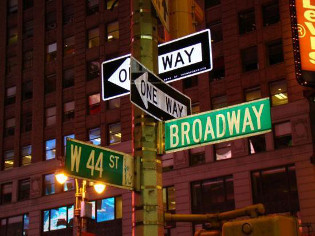
It is not necessarily a huge step, but it is a step nonetheless: New York State Senator John Bonacic, who serves as the chairman of the state’s Senate Racing, Gaming, and Wagering Committee, recently told Gambling Compliance that he will hold an online poker hearing in September.
Right now, it appears that this hearing will just be an introduction of sorts, a way to begin the discussion of eventually regulating and legalizing internet poker in New York. Bonacic said that all the various stakeholders will be invited – casinos, racinos, off track betting shops, as well as MGM and Caesars – to talk about the pros and cons of continuing with internet poker legislation. It likely will not be until next year that things will really get going, if they do at all. Right now, Senator Bonacic just wants to get the ideas flowing, to generate a discourse about the subject.
Bonacic introduced legislation to legalize online poker (and only poker, not internet casino gaming), S5302, in May. The bill is similar to one he put forward two years ago, though it does have a couple rather important differences.
The adjustment that is arguably the most important for poker fans is the removal of the “bad actor” clause. This kind of clause, which used to be quite common in online poker regulation proposals but has been losing favor in the last year or two, would exclude operators who continued offer online gambling to U.S. residents after the passage of the Unlawful Internet Gambling Enforcement Act of 2006 (UIGEA). The excuse to include a bad actor clause is usually the concern over the business ethics of a company that willingly violated U.S. law, but it is generally seen as an attempt to protect U.S.-based gaming firms by keeping strong players, particularly PokerStars, out of the market.
The other change has to do with the wording of the state’s gambling code. Currently, subdivision 1 of Article 225.00 of New York’s penal law states:
“Contest of chance” means any contest, game, gaming scheme or gaming device in which the outcome depends in a material degree upon an element of chance, notwithstanding that skill of the contestants may
also be a factor therein.
Bonacic’s bill seeks to change “in a material degree” to “predominantly,” thus relaxing the gambling laws to make room for the legalization of poker.
The bill would permit for a maximum of ten online poker licenses, each requiring the payment of a $10 million licensing fee. These licenses would be good for ten years. Interstate gaming compacts, such as the one forged between Delaware and Nevada, would be permitted; as New York is the fourth most populous state in the U.S., the other states in which online poker is or will be legalized would certainly be clamoring for a partnership with the Empire State.
The state would take 15 percent of a site’s gross gaming revenue in taxes.























